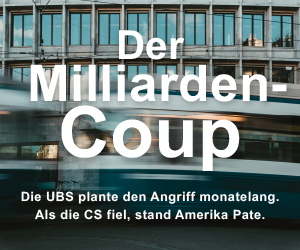Investors took fright at Eurozone-related risks, with Greece at their epicenter. As a result global equities, credits, commodities and the euro had a very bad week, and investors rushed to the USD and the traditional safe havens Treasuries and Bunds, which were driven to new highs / historically low interest rate levels respectively.
Although equity volatility and interbank interest rate spreads have not entered yet the red zone, many price trends are short-term broken, indicating potential for more consolidation and trouble ahead. It is High Noon once again, and the capital markets are showing very clearly their lack of patience with the pace of policy-making progress at present.
The political, economic, and capital market stakes are high, but Western policymakers are still more engaged in national pre-election or post-election mode, instead of collectively tackling the challenge of securing liquidity, solvency, and competitiveness for its weakest members. In that respect, the G8 meeting brought nothing more than a general, non-binding consensus to promote growth and jobs.
More important will be the meeting of the EU leaders in Brussels on May 23, where the debt and financial crisis will be discussed. It is crucial now to build confidence, with specific measures to provide a constructive means of overcoming the ongoing impasse, as confidence offers the only path to consumption and investment, and thus to growth and jobs.
The challenge the Eurozone leaders are facing is immediate in nature and fraught with multi-dimensional complexity. The positive news is that the Eurozone in aggregate has liquidity, solvency and competitiveness issues, which could be well managed. It is essential for policymakers to finally get ahead of the curve with their plans, and more importantly in their actions (in stark contrast to 2011), as the capital markets will be even more unforgiving this time.
Greece has to choose, but is currently gambling. The only realistic and constructive solution to Greece’s situation is an orderly sovereign default within the Eurozone. For the time being, we are staying on the sidelines and watching the EUR/USD rate, DAX volatility, and Spanish and Italian government bond yields as leading indicators.
US economic figures are continuing their slow but steady recovery. Last week was no exception, with positive housing and industrial data. Meanwhile, there is a clear trend indicating that labor, housing markets, and bank lending are bottoming out.
However, despite all that and even with the widely publicized IPO of Facebook, nothing could lift investors’ negative sentiment. The US stock market saw its worst weekly decline since the end of 2011, and the current funds statistics show that investors are continuing to put money into bond funds and sell equity funds.
For structural reasons, Asia – and for that matter China – needs to consume more and invest less. At least investors can focus on tangible economics in China and don’t have to worry too much about the lack of political leadership and focus on growth and jobs. That is exactly what the next leadership in Beijing is on track to do, and now investors are worrying and complaining about less quantitative and more qualitative growth.
Asian consumption remains one of our favorite investment themes and the current worries about world growth and European contagion risks are opening up very attractive entry points. We will travel to Singapore this week to meet analysts, asset managers, and business partners, to update our views and investment stance.
Dynapartners, Weekly Investment Outlook, May 21, 2012



Wie schon früher gesagt Herr Hässig:
Die „Szene“ erwartet nicht von Ihnen jeden Tag eine Top-Story. Insbesondere da wir ja hier alle gratis mitlesen und -diskutieren dürfen.
Ueberlegen Sie sich doch eine andere Variante, wie man das Problem lösen kann?!
Herzliche Gratulation zum neuen Inserenten:
EFG FINANCIAL PRODUCTS AG